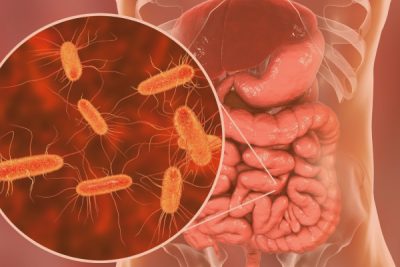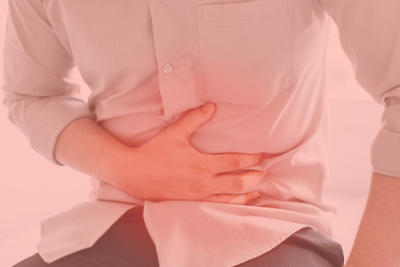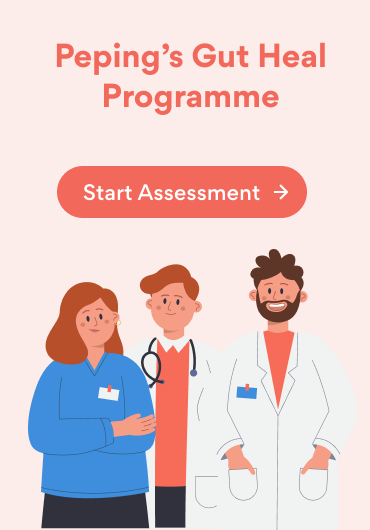Diarrhea is a functional gastrointestinal disorder that is characterized by loose, watery stools occurring more frequently than usual. The frequency of the bowels is also increased. It can be caused by various factors, such as viral, bacterial or parasitic infections, certain medication side effects, lactose intolerance, dietary changes, or surgical side effects. However, for some individuals, recurrent or chronic diarrhea may be a sign of a specific condition known as Irritable Bowel Syndrome with Diarrhea (IBS-D). In this article, we will explore the relationship between diarrhea and IBS-D, examining its symptoms, causes, and treatment options.
When the occasional episodes of diarrhea get resolved, but in some cases, it becomes more of a persistent condition then it is usually a sign of Irritable Bowel Syndrome or IBS.
Understanding the distinction between generic diarrhea and IBS-D is important for appropriate management and treatment. While generic diarrhea may be self-limiting and temporary, IBS-D is a chronic condition that requires a comprehensive approach for symptom control and improvement in quality of life.
What is IBS-D?
IBS-D is a subtype of irritable bowel syndrome, a chronic functional gastrointestinal disorder. Irritable Bowel Syndrome is a functional disorder that develops in the intestines and can cause abdominal pain, bloating, constipation, gastritis, diarrhoea and a few other disturbances.
IBS-D is characterized by the presence of both diarrhea and abdominal pain or discomfort. The exact cause of IBS-D is not fully understood, but it is believed to involve a combination of factors, gut-brain function, incorrect nutrition, hypersensitivity and other environmental factors
Symptoms of IBS-D: Understanding the Distinctive Features
The symptoms of Irritable Bowel Syndrome with Diarrhea (IBS-D) can be different in different individuals. They can significantly impact the quality of the individual’s life. People with IBS-D commonly experience abdominal cramps or pain, bloating, excessive gas (flatulence), and an urgent need to have a bowel movement. The characteristic feature of IBS-D is the presence of frequent episodes of loose or watery stools, often accompanied by a sense of incomplete bowel evacuation.
If the diarrhea episodes are temporary and are quickly resolved then it is not a concern, however, if the diarrhea episodes are more chronic and it is coupled with abdominal pain, bloating and altered bowel habits, then it is advisable to consult with a doctor as it could be IBS-D
With a proper diagnosis, you can work with your healthcare team to develop an individualized treatment plan to effectively manage your IBS-D symptoms and improve your overall quality of life.
Causes of IBS-D: Unraveling the Underlying Factors

The exact causes of Irritable Bowel Syndrome with Diarrhea (IBS-D) are not fully understood, but research suggests that multiple factors contribute to its development.
- One possible contributing factor to IBS-D is disturbances in gut motility. The muscles in the colon in the normal state contract and relax at a stable pace. However, in some individuals, the muscles spasm and the contractions are abnormal leading to increased bowel movements and diarrhea. These irregular contractions can be influenced by various factors, including diet, stress, and hormonal changes.
- Visceral hypersensitivity is another potential factor in IBS-D. The visceral organs in the body reside in the chest, abdomen and pelvis. When the abdomen develops hypersensitivity the tolerance to pain becomes much lower. This heightened sensitivity can contribute to the abdominal pain or discomfort commonly experienced by individuals with IBS-D.
- The communication between the gut and the brain, known as the gut-brain axis, also plays a role in IBS-D. Disruptions in this bidirectional communication can lead to altered bowel function and heightened sensitivity to gut sensations. Psychological factors, such as stress, anxiety, and depression, can impact the gut-brain axis and trigger or worsen IBS-D symptoms.
- Alterations in the gut microbiota have been identified as potential contributors to IBS-D. The gut is home to trillions of microorganisms that play a crucial role in digestion and overall gut health. Imbalances in the composition and diversity of the gut microbiota known as dysbiosis may contribute to gastrointestinal symptoms and inflammation associated with IBS-D.
Treatment of IBS-D
1.Nutrition Therapy: Managing IBS-D Symptoms through Diet
- The foods we consume play a significant role in our digestive health and making appropriate dietary choices can help alleviate IBS-D symptoms. A key approach is the implementation of a low-FODMAP diet, which involves reducing the consumption of certain fermentable carbohydrates known as FODMAPs(Fermentable Oligosaccharides, Disaccharides, Monosaccharides, and Polyols). These carbohydrates can be poorly absorbed in the intestines and can trigger symptoms in individuals with IBS, and by restricting their intake, it is possible to reduce bloating, abdominal pain, and irregular bowel movements. However, this is a technique that has worked for some cases and not all. In this diet, the intake of fermentable carbs is reduced and thus gut is less likely to experience fermentation and gas production. Common high-FODMAP foods that are often limited on the low-FODMAP diet include certain fruits (such as apples and cherries), wheat-based products, dairy products, legumes, and sweeteners like honey and artificial sweeteners. Instead, individuals are encouraged to consume low-FODMAP alternatives, such as rice, gluten-free grains, lactose-free dairy products, and specific fruits and vegetables that are considered low in FODMAPs.
- Identification of trigger foods is really important. A lot of individuals are intolerant to lentils, while others would be to milk and some would be to some unique vegetables. Hence it is very important to understand the trigger foods for an individual. The addition of certain healthy foods is also very important. Items like buttermilk, fennel drinks, and curd are all known to relieve these symptoms. Foods that are good in probiotics are essential.
- It is important to work with a nutritionist to be able to figure out the right diet for an individual
2.Medicinal Therapy: Targeted Approaches for Managing IBS-D Symptoms
- One class of medications commonly used in the management of IBS-D is antispasmodics. These medications work by relaxing the muscles in the intestines, helping to reduce abdominal cramping and pain. It’s important to note that the effectiveness of antispasmodics can vary among individuals, and finding the right medication and dosage may require some trial and error.
- Another class of medications used for IBS-D is anti-diarrheal. These medications help to control and reduce episodes of diarrhea by slowing down the movement of the bowels. They can be particularly beneficial for individuals who experience frequent and urgent bowel movements.
- In some cases, healthcare providers may also consider prescribing medications that target specific aspects of IBS-D, such as medications that affect serotonin levels in the gut or reduce inflammation. These medications are typically used in more severe cases of IBS-D and may require close monitoring and ongoing assessment of their effectiveness.
3.Exercise: Enhancing Well-being and Managing IBS-D Symptoms
- Exercise helps in managing Irritable Bowel Syndrome with Diarrhea (IBS-D), offering numerous benefits for both physical and mental well-being.
- Physical activity has been shown to positively impact gut motility and bowel function, which are often disrupted in individuals with IBS-D. Exercise stimulates the muscles in the gastrointestinal tract, promoting healthy contractions and facilitating regular bowel movements. It can help regulate bowel transit time and reduce the frequency of diarrhea episodes, providing individuals with greater control over their symptoms.
- Stress is known to be a significant trigger for IBS-D symptoms, and engaging in regular exercise can help reduce stress levels and improve stress resilience. Exercise releases endorphins, also known as “feel-good” hormones, which promote a sense of well-being and relaxation. By managing stress more effectively, individuals with IBS-D can potentially reduce the severity and frequency of symptom flare-ups.
- It is important to choose the right type of exercise. Some individuals may find certain exercises. Low-impact exercises, such as walking, swimming, cycling, and yoga, are generally well-tolerated and can be adapted to different fitness levels. These activities can be incorporated into a daily routine, providing consistent benefits for gut health and overall well-being.
- A comprehensive treatment approach that combines medicinal therapy with dietary modifications, lifestyle changes, exercise and stress management techniques are often recommended to effectively manage IBS-D and improve overall well-being.
Is my Diarrhea an indication of IBS?
When is Diarrhea an Indication of IBS-D?
IBS-D is a functional gastrointestinal disorder characterized by recurring episodes of abdominal pain or discomfort accompanied by frequent and loose bowel movements. If you are experiencing diarrhea along with other hallmark symptoms of IBS-D, such as abdominal pain or discomfort that improves after a bowel movement, a change in stool consistency or frequency, and a sense of urgency to have a bowel movement, it may suggest the presence of IBS-D.
It’s important to note that IBS-D cannot be measured by physiological changes or structural abnormalities. If you have concerns about your symptoms, it is advisable to consult with a healthcare professional
While experiencing diarrhea can be distressing, it’s important to remember that IBS-D is a manageable condition, and various treatment options are available to alleviate symptoms and improve your quality of life. One should not self-diagnose and start the treatment and rather consult a doctor to get a personalized plan.
When is Diarrhea Not an Indication of IBS-D?
While diarrhea can be a symptom associated with Irritable Bowel Syndrome with Diarrhea (IBS-D), it’s important to recognize that not all instances of diarrhea indicate the presence of this condition. Diarrhea can be caused by various factors, and understanding when it is not an indication of IBS-D is equally important in obtaining an accurate diagnosis and appropriate treatment.
- Acute diarrhea, typically lasting for a short duration, is commonly caused by bacterial, parasitic or viral infections. These infections often result from consuming contaminated food or water and can lead to sudden episodes of watery diarrhea, abdominal cramps, and sometimes fever or vomiting. In such cases, the diarrhea is generally self-limiting and resolves within a few days to a week with proper hydration and rest.
- Antibiotics can disrupt the natural balance of gut bacteria, leading to diarrhea as a side effect. This type of medication-induced diarrhea is usually temporary and subsides once the medication course is completed.
- Food intolerances or sensitivities, such as lactose intolerance or sensitivity to certain food additives, can cause diarrhea in some individuals. These conditions occur when the body is not able to digest certain food and the undigested food is fermented in the gut causing bloating, diarrhea and discomfort
- Other gastrointestinal disorders, such as inflammatory bowel disease (IBD) or celiac disease, can also present with diarrhea as a primary symptom. These conditions involve inflammation or immune reactions in the digestive tract and require specific diagnostic tests to differentiate them from IBS-D.
- If your symptoms are accompanied by concerning signs such as blood in the stool, unintended weight loss, or severe abdominal pain, it’s crucial to consult with a healthcare professional for a thorough evaluation.
Diagnosis is key in determining the most effective course of action for managing your symptoms and promoting your overall well-being. Self Diagnosis should be avoided at all costs.
Differentiating Regular Diarrhea from IBS-D: Understanding the Key Factors
How to distinguish regular diarrhea from IBS-D
- Duration and Frequency: Regular diarrhea occurs for a small period of time and is resolved in a week’s time. IBS-D is recurrent episodes of diarrhea that persist for at least 3 months. The frequency and chronicity of diarrhea in IBS-D are much higher
- Associated Symptoms: Symptoms accompanying diarrhea can tell a lot. In the case of IBS-D, individuals may experience abdominal pain or discomfort that improves after a bowel movement, a sense of urgency to have a bowel movement and a change in stool consistency or appearance. These additional symptoms, combined with diarrhea, can suggest a functional gastrointestinal disorder like IBS-D.
- Trigger – Diarrhea could happen because of something consumed in a one-off case. Street food in India can cause diarrhea many times. In the case of IBS-D, it develops over time when the body builds intolerance to certain food items
Treating Diarrhea: Addressing the Underlying Causes
When it comes to managing diarrhea, regardless of whether it is associated with Irritable Bowel Syndrome with Diarrhea (IBS-D) or not, addressing the underlying causes is key. Treatment aims to alleviate symptoms, restore bowel regularity, and improve overall digestive health. Here are some approaches to consider:
- Hydration and Electrolyte Balance: Diarrhea can lead to dehydration and electrolyte imbalances due to fluid loss. It’s crucial to replenish fluids by consuming adequate amounts of water, clear broths, and oral rehydration solutions. Additionally, including foods rich in electrolytes, such as bananas, yoghurt, and coconut water, can help restore the body’s electrolyte balance.
- Dietary Modifications: Adjusting your diet can play a significant role in managing diarrhea. Avoiding spicy or fatty foods, caffeine, and alcohol is often recommended. Instead, opt for a bland, low-fiber diet that includes easily digestible foods like rice, toast, cooked vegetables, and lean proteins. Gradually reintroducing high-fiber foods can help regulate bowel movements once diarrhea subsides.
- Probiotics: Probiotics are beneficial bacteria that promote gut health and can help restore the natural balance of intestinal flora. Gut dysbiosis is quite common in India due to the high usage of antibiotics and our diet. Consider incorporating probiotic-rich foods like yoghurt/buttermilk, kefir, and banana, or taking probiotic supplements as recommended by your healthcare provider to make the gut microflora healthy.
- Over-the-Counter Medications: In certain cases, over-the-counter medications can be used to manage acute diarrhea. Antidiarrheal medications, such as loperamide, can help slow down bowel movements and provide temporary relief. However, it’s important to consult with a healthcare professional before using these medications, especially if you have underlying health conditions or if diarrhea persists for an extended period. Antispasmodic medicines can also be used at times to relax the muscles in the intestines.
Conclusion: Understanding Diarrhea and IBS-D for Personalized Care
Differentiating IBS-D from regular diarrhea is just as the course of treatment largely changes. We have covered on how to differentiate between IBS-D and regular diarrhea and it is important to consult a doctor to diagnose.
IBS-D is characterized by recurring episodes of diarrhea, accompanied by symptoms such as abdominal pain, urgency, and changes in stool consistency while regular diarrhea is more short-term. It’s also important to recognize that not all instances of diarrhea indicate IBS-D.
Seeking medical evaluation is crucial, especially when experiencing persistent or severe symptoms, to rule out other underlying conditions and receive appropriate treatment.
In a nutshell, by working together, patients and healthcare providers can develop a comprehensive approach to manage symptoms, improve gut health, and enhance overall quality of life.














